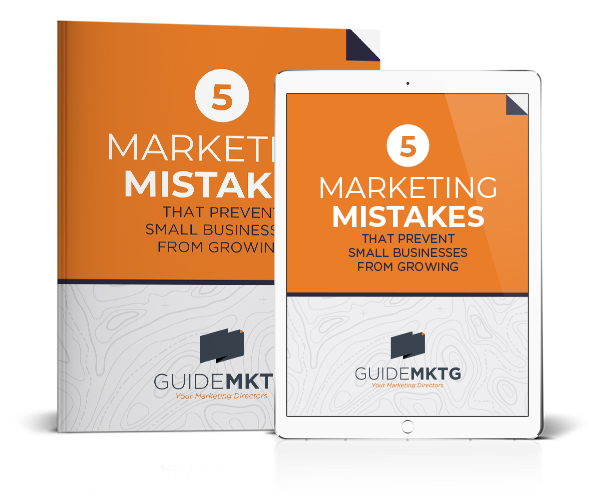What is the principle of reciprocity?
The principle of reciprocity is a basic law of social psychology. When someone does something for you, you feel obligated to return the favor. In the same way, when someone gives you something of value, you feel compelled to give them something back. The term reciprocity describes this sense of obligation we feel to return kind gestures with an equally significant gesture.
In ancient times, human beings depended on one another to survive. It was human nature to stay close to the people who helped you. To continue developing those relationships, we sought out ways to give value back, developing mutual respect and trust.
Although we no longer live in such a culture, we have evolved to cooperate with one another and value relationships.
According to Robert Cialdini, the author of Influence: The Psychology of Persuasion, “We are hard-wired to respond positively to a gift, even if we didn’t ask for it, or want it. We automatically feel indebted to the giver.”
How is reciprocity used in marketing?
Expert marketers regularly use the principle of reciprocity to motivate customers to buy their product or service. This can be done through overt tactics, like sales and coupons, or by more subtle methods.
For example, let’s say you are shopping for a new TV. The salesperson helps you find the perfect TV but the price is a bit out of your budget. As you listen to the salesperson outline all the features of the TV, you begin to justify the price and decide to buy it anyway.
In this interaction, you subconsciously feel as though this salesperson, or electronics company, is doing you a favor by adding so many “extras” to your TV. As a result, you want to give them something in return. So, you buy the TV, grateful for all the additional “value” that came with it. Concept of reciprocity for the win!
Here is another simple example of the reciprocity principle in digital marketing: You give a potential client the feeling of being seen and understood through the words on your website so he or she gives you their email address. You then email this new customer a PDF full of valuable information. In return, he or she decides to buy your product or service.
What are the benefits of reciprocity marketing?
Although the idea of hacking human psychology to convince someone to buy your product or service may sound a little creepy, the interaction itself doesn’t feel creepy to customers. As you can see from the examples above, it feels very natural and genuine.
Reciprocity marketing is simply giving value to your customers before asking them for anything in return. Instead of focusing solely on growing your business, you are approaching new and existing customers with a service mindset, always looking for ways to provide more value to them. When implemented correctly, the reciprocity principle can increase your marketing effectiveness while building long-lasting business relationships.
What are some examples of the concept of reciprocity in marketing?
The concept of reciprocity is used all the time in marketing, with current and target customers. Here are a few common examples:
Free Samples
In a study done by Marsh supermarkets, they found that offering free samples increased sales by up to 2,000% (no wonder Costco is so successful!).
Offering free samples could mean offering a physical product at the store, sending a free sample when someone orders online, a platform offering a free trial, or a website offering free content.
Unexpected Gifts
Many companies send gifts to “thank” their existing clients and past customers. They may send an unexpected gift over the holidays or give a gift after a large transaction is finished. However, this gift isn’t just to say thank you.
It is opening the door for repeat business. Remember, receiving a gift will trigger customers to want to return the favor. When they need the same service in the future, they will think of the company that has given them the most value first.
Bonuses
Outlining features or bonuses of your offering increases the perceived value. Listing out all the benefits of a product, as we did for this client, not only helps justify the price tag, it also makes the client feel as though you are giving them more for their money.
Here are a few additional bonuses you could offer:
-
- free one-day delivery
- cover delivery costs
- free installation
- premium membership or subscription
- bundle products or services
- offline mobile access to your platform
- free coaching or feedback
Buy a potential client dinner or coffee
Taking a potential client, or even a potential employee, out for dinner has obvious benefits.
Eating a meal together strengthens the relationship, which is already a form of giving. Buying the meal adds additional value. After being treated so well, the new customer will feel subconsciously obligated to give you something in return, greatly increasing your chances of customer acquisition.
Having free coffee, drinks, or even a free mint, available in your lobby is another way to harness the concept of reciprocity in your business. This completely free gift makes your new customer’s experience more enjoyable and encourages them to return.
Offer discounts
Everyone loves a good sale. We think that it is solely because we love to save money. However, sales are also effective because we feel the company is doing us a favor. The sales tag catches our eye and we are automatically drawn to the company that wants to save us money, sometimes even if their product isn’t the cheapest option on the shelf.
Exceptional Customer Service
Looking for a free way to harness the concept of reciprocity in marketing? Look no further than the way you treat your customers.
By going above and beyond for your clients, you are giving them even more value than they’d expected. This increases their level of satisfaction and leaves them feeling like they still owe you something for the high-quality service they just received.
To provide exceptional customer service you can encourage your team to focus on interacting with all clients in a positive or friendly way. Listen closely to your current customers and cater your offerings to meet their needs. Have effective complaint resolution policies and take the time to inform clients of the specific response taken as a result of their feedback.
Make every effort to let your clients know they matter.
Referral programs
A referral program offers your existing customers the opportunity to give back to you and continue receiving in return. If they tell a friend about your product or service, they both get a discount and you get a new client. In the end, everyone wins.
What are the best reciprocity marketing strategies?
Now that you know how the concept of reciprocity shows up in life and marketing, here are a few ideas to help you make the most of this powerful marketing psychology.
Always give more than you take.
Forbes Council Member Jeff Bradford refers to this as the “give, give, give, get” formula. In essence, you want to always be giving more often than you are asking to get something in return. This should be true in your social media posts, content marketing, and any other interactions you have with clients. 80% of the content you offer should be free, valuable information while only 20% of your messaging should be focused on getting something in return.
Provide a truly valuable gift.
John Ruhlin used the concept of reciprocity so much that he created a whole company around it called “Giftology”. He learned that giving high-quality gifts often led to high-quality relationships. He once gave someone a gift worth $7,000. That gift led to a long-lasting relationship that earned Ruhlin millions of dollars in return.
However, you don’t have to spend millions of dollars to provide valuable gifts. When you are in a waiting room in the middle of winter, a warm cup of coffee feels incredibly valuable. When you are struggling with a problem, free advice that leads you to a short-term solution is priceless. Even the cheap and flimsy gifts kids get at the dentist’s office feel valuable enough to get them to return. Know your audience well so that you can discern what type of gift will provide value to them.
Use a deadline
We feel most compelled to reciprocate the favor shortly after the initial favor has taken place. To apply this in your business, consider offering a time-sensitive gift or bonus for new customers.
How will you give value to your customer?
The principle of reciprocity is a powerful motivator that you can use to convince customers to take action and buy your product or service. If you haven’t tried using the principle of reciprocity in your business, now is the time to start! How can you provide additional value to your customer?
If you aren’t sure, let us use the concept of reciprocity on you! Schedule a free call and we’ll make some specific suggestions about the type of value you could provide your customers.





